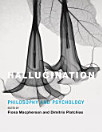Sensory Substitution and Augmentation
About this ebook
Sensory Substitution and Augmentation has three specific aims. The first is to present the latest empirical research on sensory substitution and augmentation. Second, philosophers and scientists who adopt a very different approach comment on the empirical work. Their commentaries are often critical of the assumptions of the work, but often they make and call for clarifications, suggest extensions to the work, or comment on features of the application of the work that the original authors do not. This is one reason why Sensory Substitution and Augmentation is more than simply a collection of papers on the same topic. Finally, philosophers look at the nature of sensory substitution and augmentation, tackling issues such as the nature and limitations of sensory substitution, the nature of the sensory experiences, theories of perception, and the potential for these devices to help those people with disabilities, in part due to future amendments of the devices that are suggested.
Throughout, there is a particular focus on the nature of the perceptual experiences, the sensory interactions, and the changes that take place in the mind and brain over time that occur while using and training to use these technologies.
About the author
Fiona Macpherson is Professor of Philosophy at the University of Glasgow, where she is also director of the Centre for the Study of Perceptual Experience. She is a fellow of the Royal Society of Edinburgh, member of the Arts and Humanities Research Council and trustee of the Kennedy Memorial trust. Her work concerns the nature of consciousness, perception and perceptual experience, introspection, imagination, and the metaphysics of mind. She has written on the nature of the senses, on cognitive penetration, and on illusion and hallucination. Her publications include Handbook of Philosophy of Colour (with Derek Brown; 2018), Phenomenal Presence and Perceptual Imagination and Perceptual Memory (both with Fabian Dorsch; 2018), Hallucination (with Dimitris Platchais; 2013), The Senses (2011), The Admissible Contents of Experience (with Katherine Hawley; 2011), and Disjunctivism (with Adrian Haddock; 2008).






